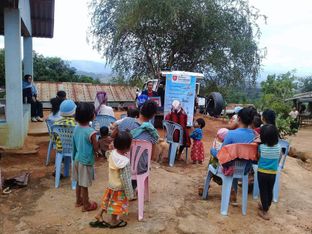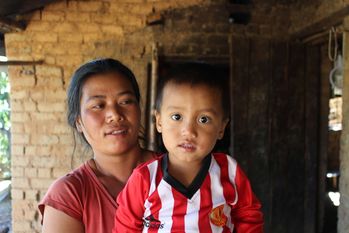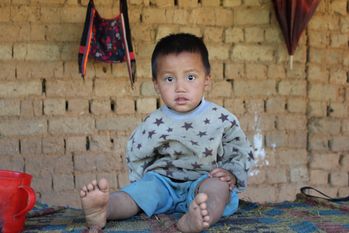Restoring the joys of motherhood in Myanmar
Malteser International provides care for children suffering from TB and their families
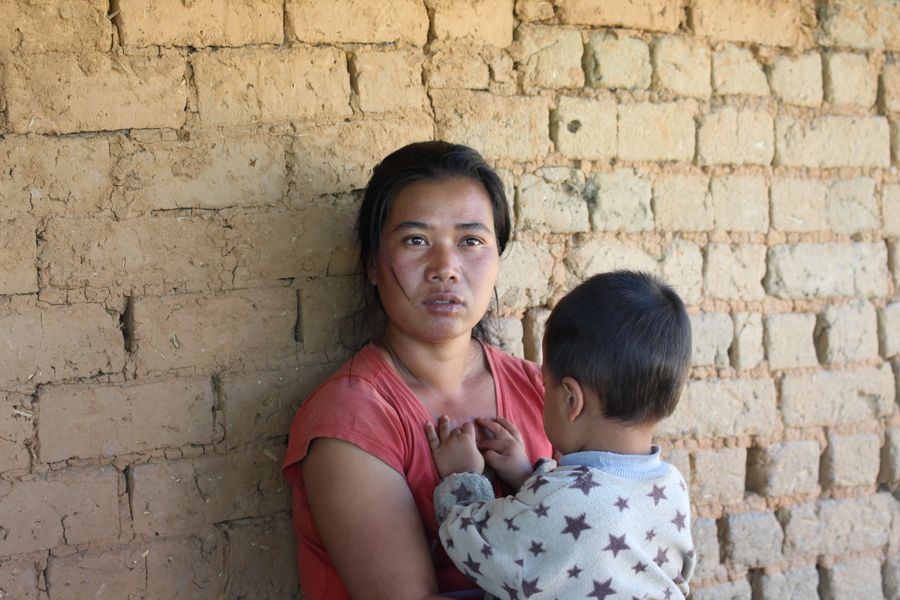
Being a mother comes with a spectrum of emotions. There is mostly the pure joy of watching ones child grow from infant to teenager and then to an adult, but there are also a number of unpleasant moments that accompany motherhood. One of these is having to watch one's child fall ill, far worse is the feeling of helplessness when a mother lacks the resources to bring healing to her child. Mi Tueh (30) from Myanmar knows that feeling quite well. Last year, her 2-year-old son Ar Jua was diagnosed with tuberculosis.
Ar Jua had been showing signs of illness for over a year but Mi Tueh never understood what was really wrong. "He usually developed a fever, and would sweat a lot at night,” she says. “I had sleepless nights. I would wake up every couple of hours to see if he was still breathing." These thoughts filled her with a deep sadness that lingered until she attended a Malteser International health education event on tuberculosis prevention and early detection.
"It was almost too late"
Mi Tueh and her husband are subsistence farmers who survive by cultivating rice and other vegetables in the small village of Tin Htet in Kengtung, a town in Myanmar's Eastern Shan State. Myanmar is one of the world’s high tuberculosis (TB) burden countries. Although advances have been made in tuberculosis treatment in urban areas in the country, people in remote villages like Tin Htet have been left behind. This difference is mainly due to factors associated with poverty and under-development, such as poor living conditions, underlying low health and nutritional status, lack of money to access adequate health services. Malteser International is working in close partnership with the national TB program in Myanmar to treat and prevent tuberculosis in these areas, first by spreading awareness on the transmission of the disease through health information campaigns, and then providing financial, medical and nutritional support for vulnerable families who have been affected by the disease.
Mi Tueh remembers her first meeting with the health workers from Malteser International. “I almost did not go to the health information meeting that day,” she recounts. “Our village chief had asked us to go to the information session, but I had so much to do on the farm that day. I finally decided to go. After the meeting, there was a check-up session, and that was when they told me he had TB”. She takes a long look at her son, who was sitting quietly on her lap. “It was almost too late", she says shaking. “If I didn't go there that day, maybe I would not have found out he had TB. He probably would not have been here today.”
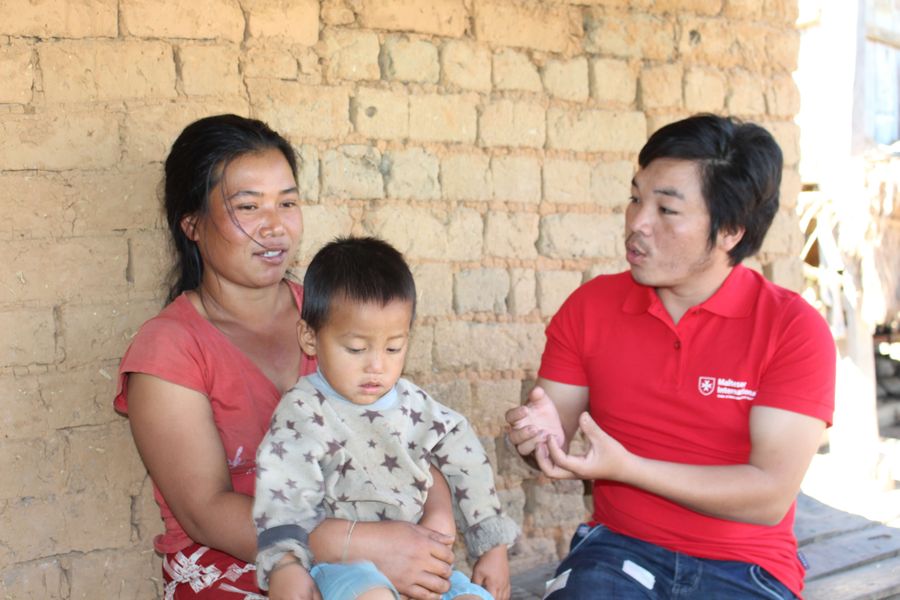
Early detection, treatment and care
“In the Kengtung region, children represent as much as 20 per cent of all tuberculosis cases we see,” says Sai Kham Kyaut, Malteser International's medical officer in Kengtung. “Although, they are a very vulnerable group, they are rarely considered when it comes to the treatment of TB. One reason is that they produce less sputum making diagnosis more difficult than in adults. A major challenge is the early detection of people with TB.”
After the diagnosis, Malteser International doctors prescribed little Ar Jua for a six-month TB treatment at the Kengtung township hospital. However, the financial burden of the disease on a less privileged family like Mi Tueh’s can be too heavy. To lighten this burden, Malteser International provided Mi Tueh with a transport subsidy to facilitate her visits to the township hospital, located about 40 kilometers from her village. “I had to go to the hospital two times a month,” Mi Tueh says. “The 20,000 Kyats I received monthly meant so much to me. My family would not have afforded the transportation on our own.” This sum is equivalent to 12 Euros. During the course of the treatment, Mi Tueh and her family also received nutrition supplements from Malteser International to support Ar Jua’s healing process.
Ar Jua is on his way to full recovery as he has almost completed his treatment, and Mi Tueh has a reason to smile again. “I thought I had failed as a mother,” she says. “It gives me joy to see that he has the strength to laugh and play now.” Like every other mother, Mi Tueh wants the best for her son, and hopes he remains in good health. “I want him to be healthy, so he can go to school and become someone important, but I think he wants to become a footballer,” she laughs, pointing at the jersey he is wearing. “Maybe he will be a successful football player. I am fine with that.”
Malteser International first began working in Myanmar in 1996. Today, Malteser International employs more than 350 national staff in Rakhine, Shan and Kayin states where the organization works to ensure access to primary health care services for vulnerable communities. Malteser International also offers comprehensive WASH and disaster risk reduction/climate change adaptation solutions, and provide relief after disasters.
March 2018, Michael Etoh

